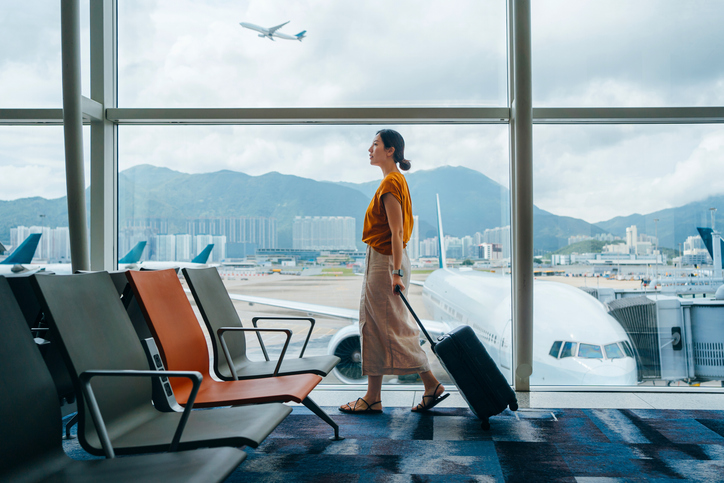Traveling internationally can be pretty exhausting, but add in managing an autoimmune disease, and a difficult situation can become even more complicated.
Living with primary biliary cholangitis (PBC), I’ve learned to readjust my travel plans, both for actual travel days and for days I plan to do tourism. I recently traveled for the first time internationally since starting my PBC journey, and it served as a learning opportunity for future travel plans.
Learn more about PBC signs and symptoms
Travel days and their challenges
Days spent in airports are some of the days I dread most. I have to take several medications multiple times per day, so I always have to ensure I have my medication bag packed in my carry-on luggage. With PBC, sometimes my symptoms can really vary from day to day, so I must be sure to pack medicine for any scenario of symptoms.
Leg swelling is common with travel on long flights, and it can be made worse with PBC. I always try to travel wearing compression socks to try to combat swelling. When I recently went to Edinburgh, Scotland, the swelling of my lower legs stuck with me for a few days. That affected how much time I spent walking around the city and doing tourist activities. I ended up having to cut one of my tourist days short due to severe leg pain..
It’s unfair to set high expectations and then be let down because your body can’t keep up with you. This is a thought I struggle with a lot, but I try to be kind and give myself grace.
Packing challenges Increased swelling and pain are probably the worst side effects I experienced while traveling. Inflammation does not like travel. I had three flights to get to Scotland, and that was devastating to my body. I was too scared to check my luggage for fear of it getting lost. So instead, I carried two carry-ons full of everything I would need for nine days.I’m not a light packer, so my main suitcase was very heavy. In fact, it was too heavy for me to lift my luggage into the overhead bin.
I have arthritis in my hands, so something heavy and bulky was hard for me to navigate. I wish that planes were more accessible to people with invisible disabilities. At least I’ve learned that next time, I need to check my suitcase regardless of my fear, because dragging it along with two connecting flights was too hard for me and my broken body.
I should have stopped at a pharmacy to get some Epsom salt. I find that soaks help my arthritis and swelling a lot. I did take a few baths, but it wasn’t enough to truly help combat my pain. I wish that I had enough space in my luggage to have fit a heating pad, that could have helped some.
Planning ahead for pain and flare-ups
The biggest issue I ran into was back pain. The hotel bed was comfortable, but it wasn’t soft enough for my inflamed joints. So, I felt like I had to use all my pillows to give myself some extra padding to get comfortable enough to sleep. I never felt like I was truly rested, despite sleeping and starting to adjust to the six-hour time difference. Therefore, my fatigue level was high–igh enough that I could have used several naps. Istead, I tried to drink enough coffee to keep myself going throughout the day.
When I got back to the U.S., I was in a severe flare up. My joints were so inflamed, I could physically feel the heat radiating off of them. I ended up missing a day of work because I was running a 100-degree fever, and I was having a difficult time walking.
To help, I treated myself to my first full-body professional massage. After the initial day or two of experiencing painful muscles, the massage helped immensely.
The takeaway
Autoimmune disease can take a lot from your life, but it’s important to keep going and keep adapting. I have tried to learn the limits of what my body can and cannot handle and try to adapt from there. Even though traveling was rough on my body, I’m glad I went, and now, I can take what I learned to make my next trip a little easier on my body.


